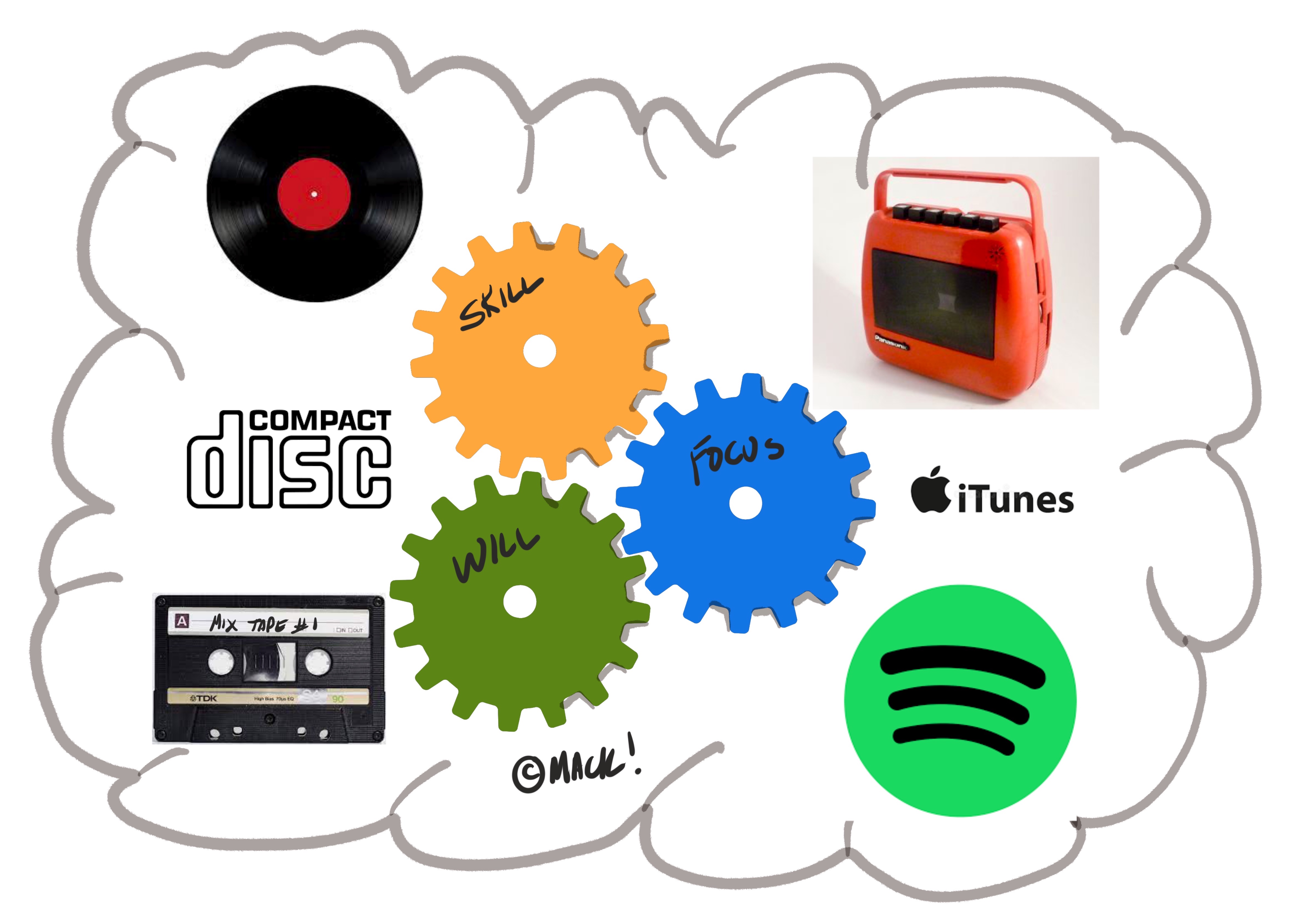I’ve been a music lover as long as I can remember. When I was 11, my parents got me a red tape recorder that would record on cassettes. It also played the radio. I remember making mix tapes even back then as I waited patiently for my favorite songs to come on so I could record them.
I did have a large stack of 45s and several albums as I got a little older. When I turned 16 and got my driver’s license, I installed an 8-track tape player in my truck. Soon I found that cassettes were all the rage, so I bought my first “tape deck” and installed that.
When I joined the Navy, I prided myself on the number of cassettes I had. I joined the Columbia Records and BMG music clubs (you remember those don’t you? Get 13 cassettes for just $1.00 and then buy just nine more at full price to complete your membership obligation).
In 1985, CDs began to emerge. I was intrigued by the idea of never having to wind up a tangled cassette with a pencil anymore. So, I began buying music on CD. When Barb and I got together in the 1990s, we combined our CD collections which numbered well over 200. Not to mention the amount of “mix tape” CDs I created. I felt like I finally had all my favorite albums in a non-destructible format. And I owned them. They were mine. We kept them in several albums so we could get rid of the space-hogging jewel cases.
But when I discovered digital music, I could see the potential. I had a portable CD player, but if you bumped it, the thing would skip. That made it useless for running or working out. But with the mp3 player, you could hang it around your neck, hook up headphones, and off you went.
Yet, I couldn’t get into the idea of buying digital music from iTunes. I loved looking at my CD albums. Just having my music “in the cloud” seemed odd to me. But eventually, I caved and got an iPod. I was able to “rip” my CDs into digital and now could see all my music. And I owned all my music.
Then one day my kids introduced me to Spotify.
“Dad”, they said, “Why are you buying music when you can build playlists on Spotify? You can have all your favorite music available on your phone. No more mp3 players.”
It took a long time for me to do it, but eventually I embraced Spotify and have never looked back.
And our many binders of CDs? They sit quietly in our barn, gathering dust on a shelf. I don’t have the heart to get rid of them, but I know I need to.
Even though I ignored the changes in music formats initially, eventually I embraced them.
But for many of us, we refuse to change to new technologies. In our personal lives, there probably isn’t that much risk. Professionally however, ignoring change can be a problem.
For a time, anyone who wanted could slap the title of “coach” on and call themselves “coaches.” It was like the Wild West. No regulation and no oversight.
Then, the International Coaching Federation (ICF) proposed credentials, codes of ethics, and bodies of knowledge that should be embraced to control the coaching space.
If you ignored this change as a coach, you could get away with it. For a time.
But nowadays, most people will ask for the ICF credentials when looking for a coach. If you chose to ignore this change, you might be on the outside looking in.
There are many more examples of the consequences of ignoring change but trust me. If the change is inevitable, do yourself a favor and embrace it as early as possible. Those coaches who got their credentials early on now have far more experience, a larger prospect base, and far more past performance.
This week, think about the changes you’ve ignored previously. How have they impacted you? Just like my music collection, I had to face the prospect of not “owning” my music, but now I never think about it. My Spotify playlists could be deleted, but I can quickly rebuild them. And I no longer have the urge to sit and look at all the music in my collection. I know it’s there. That’s all that matters.
How will you lean into the changes you face this week?

